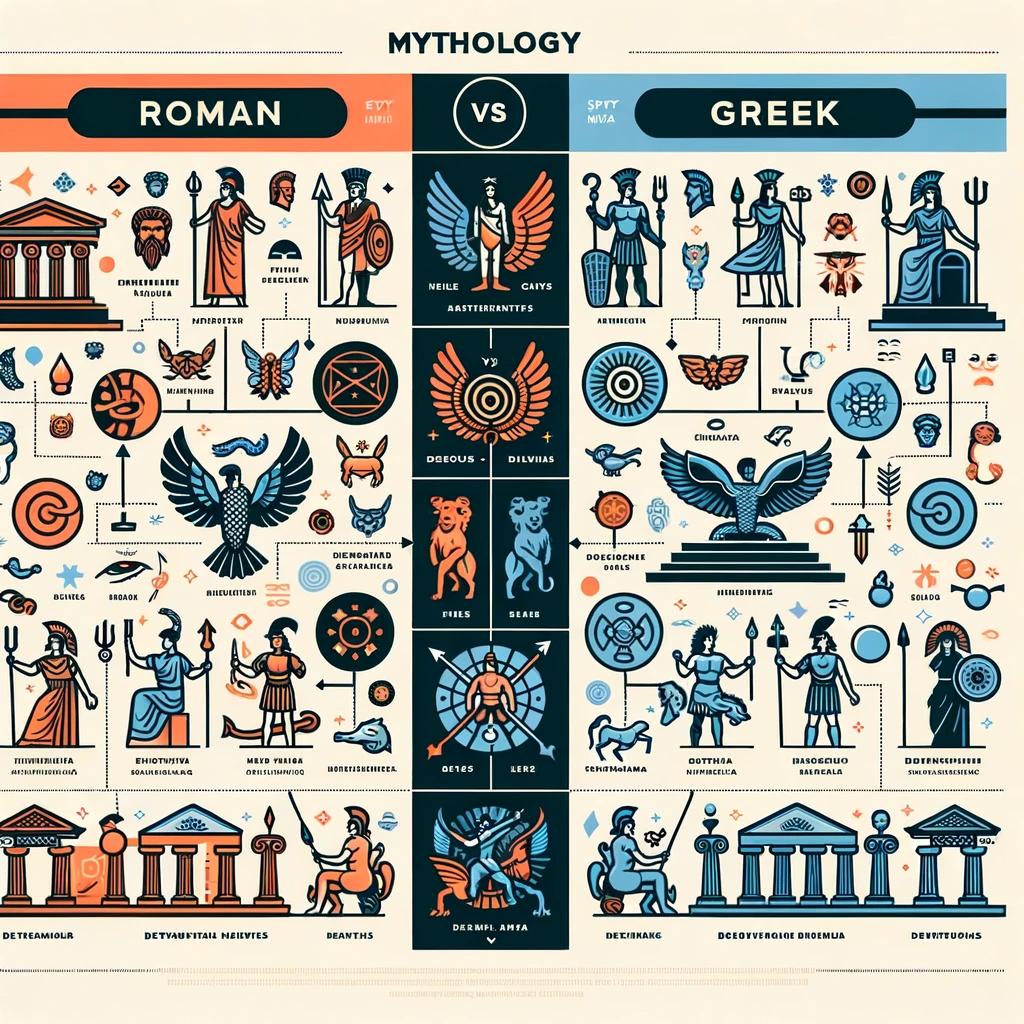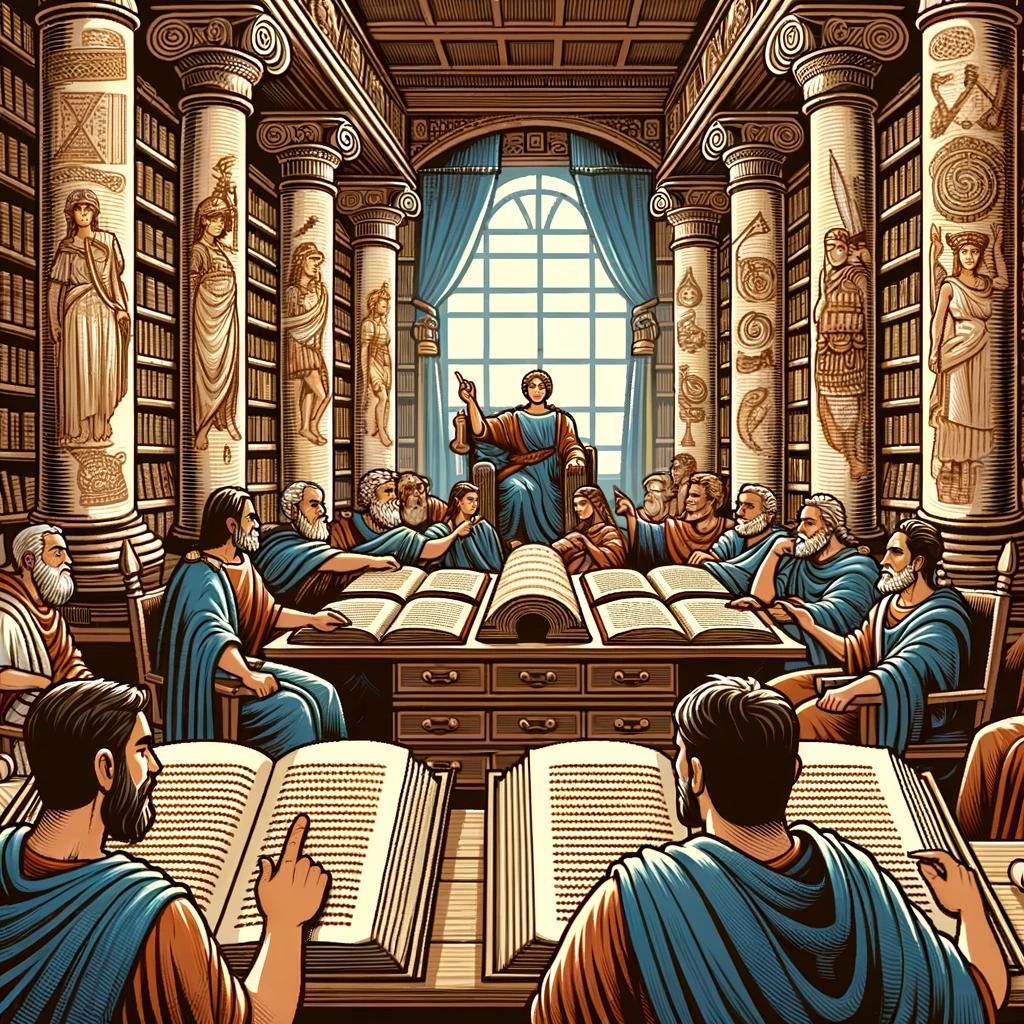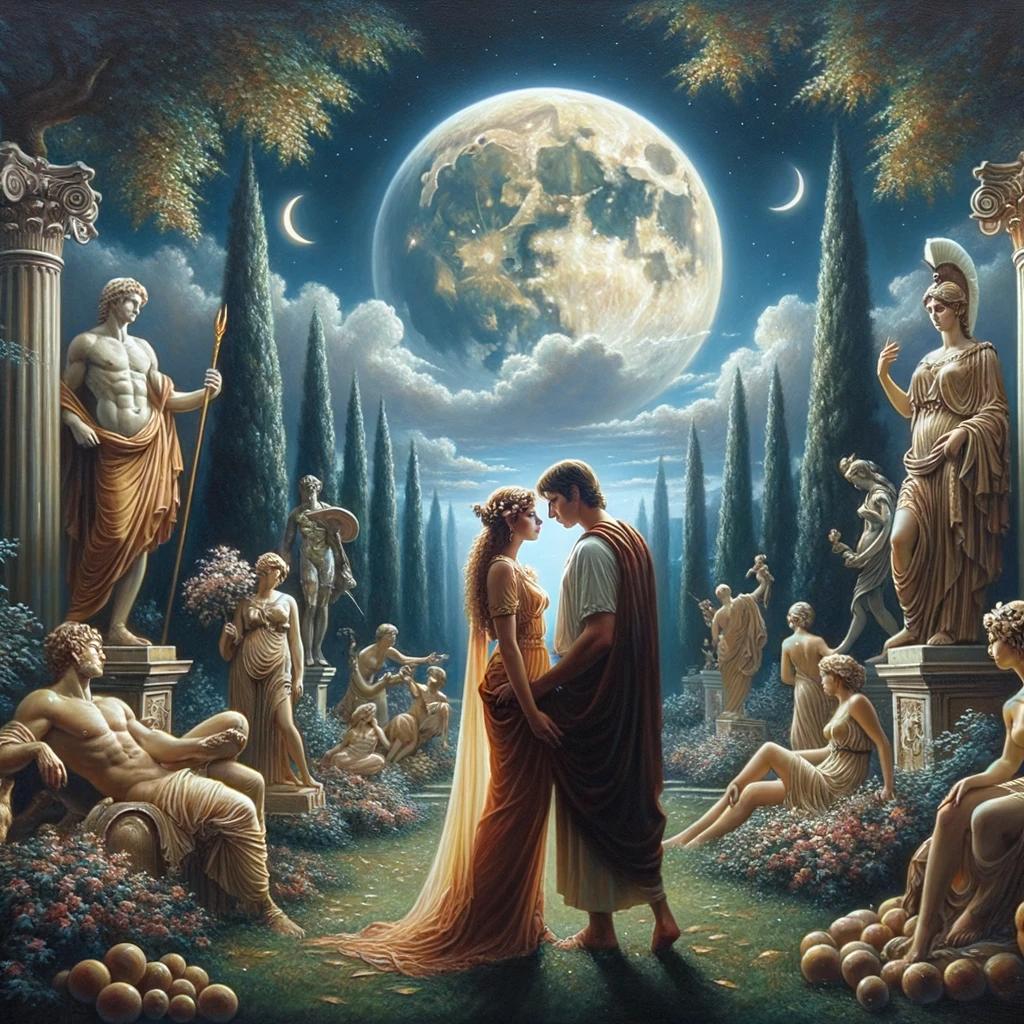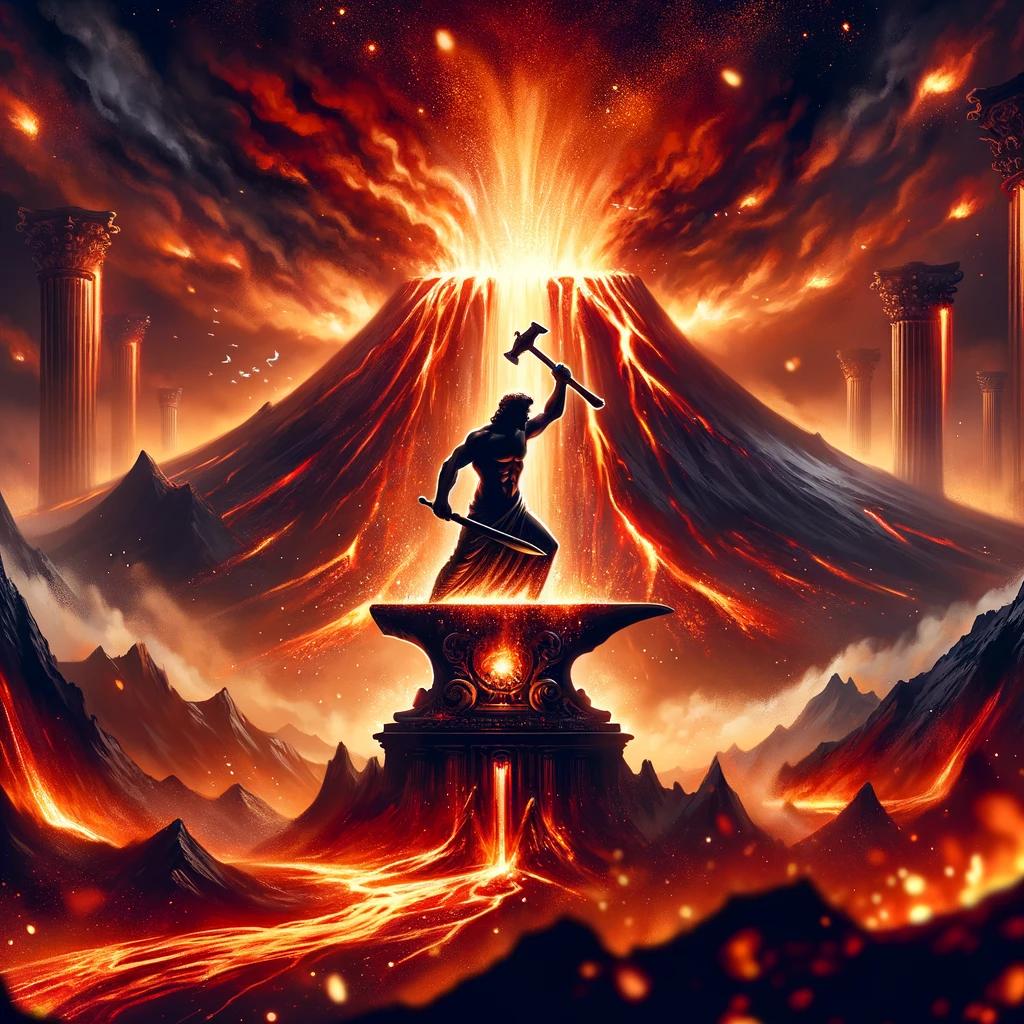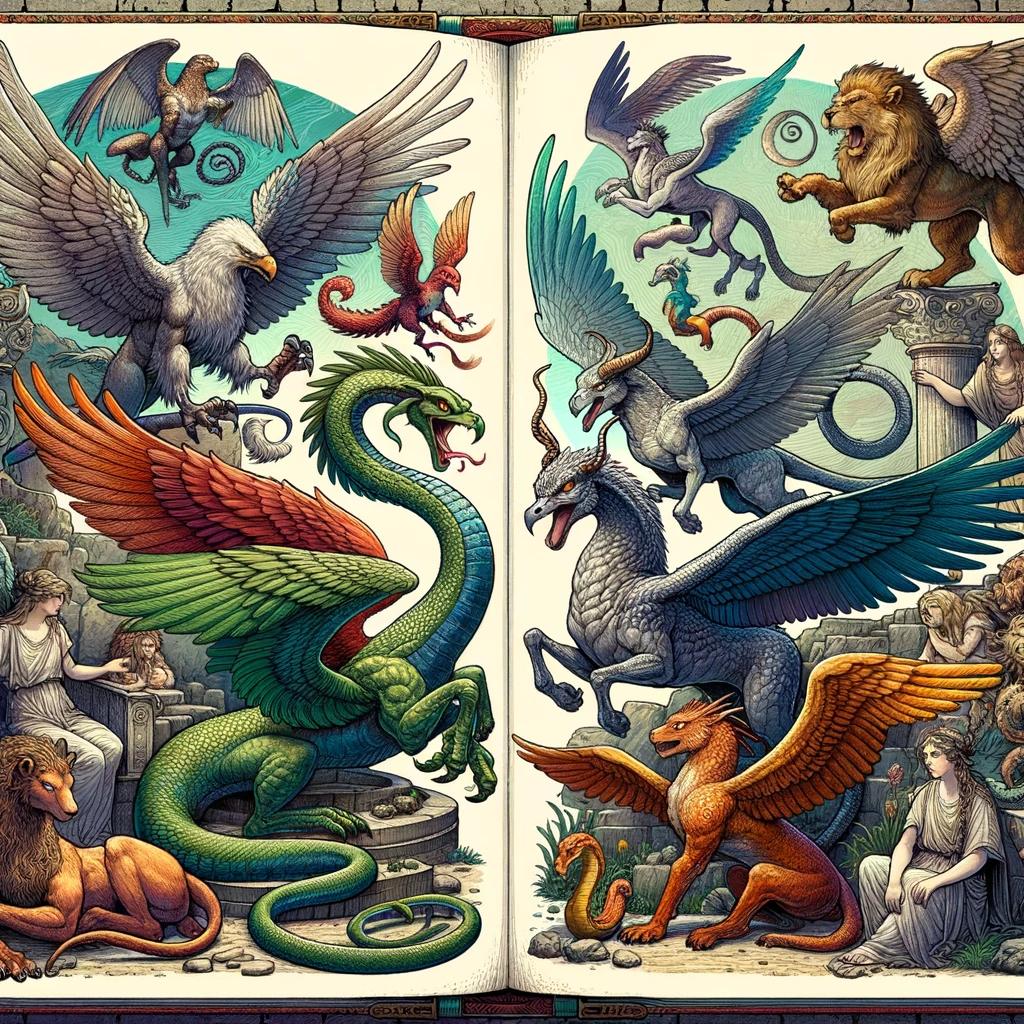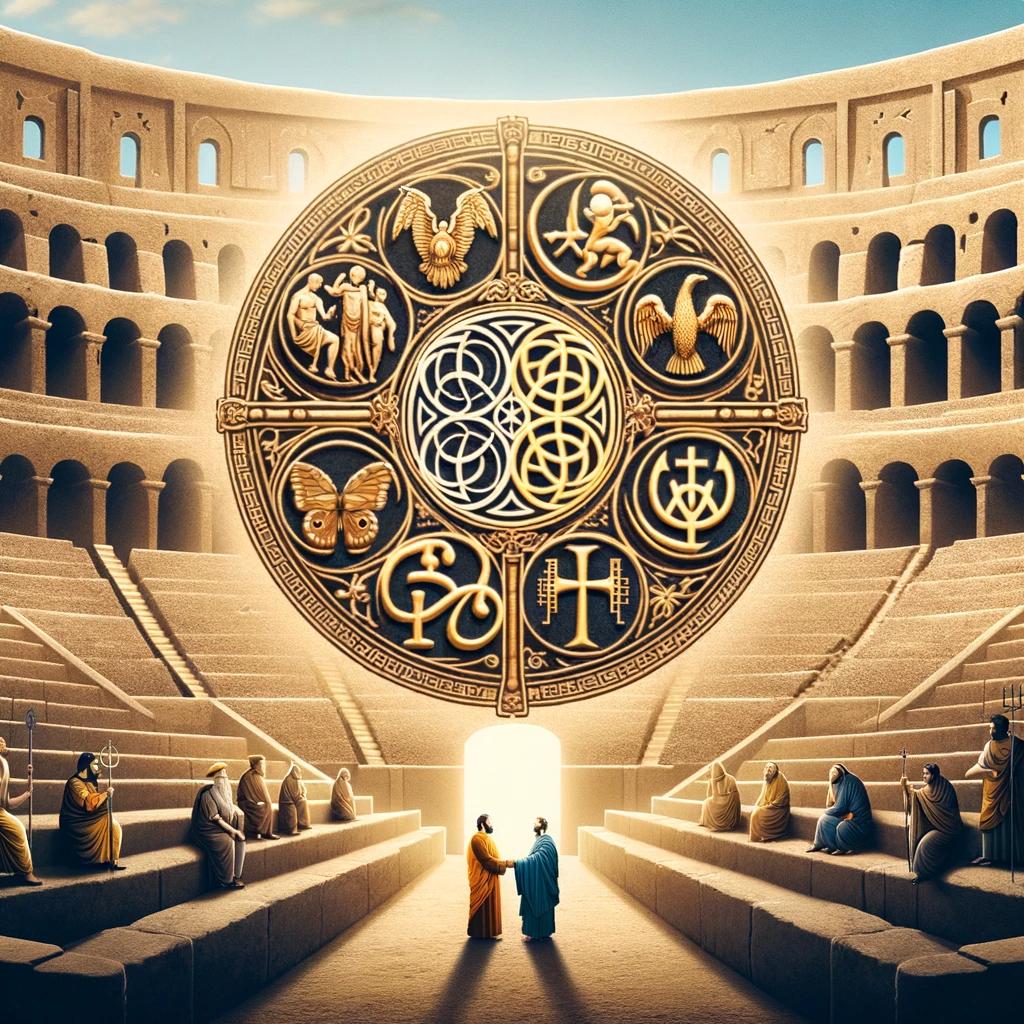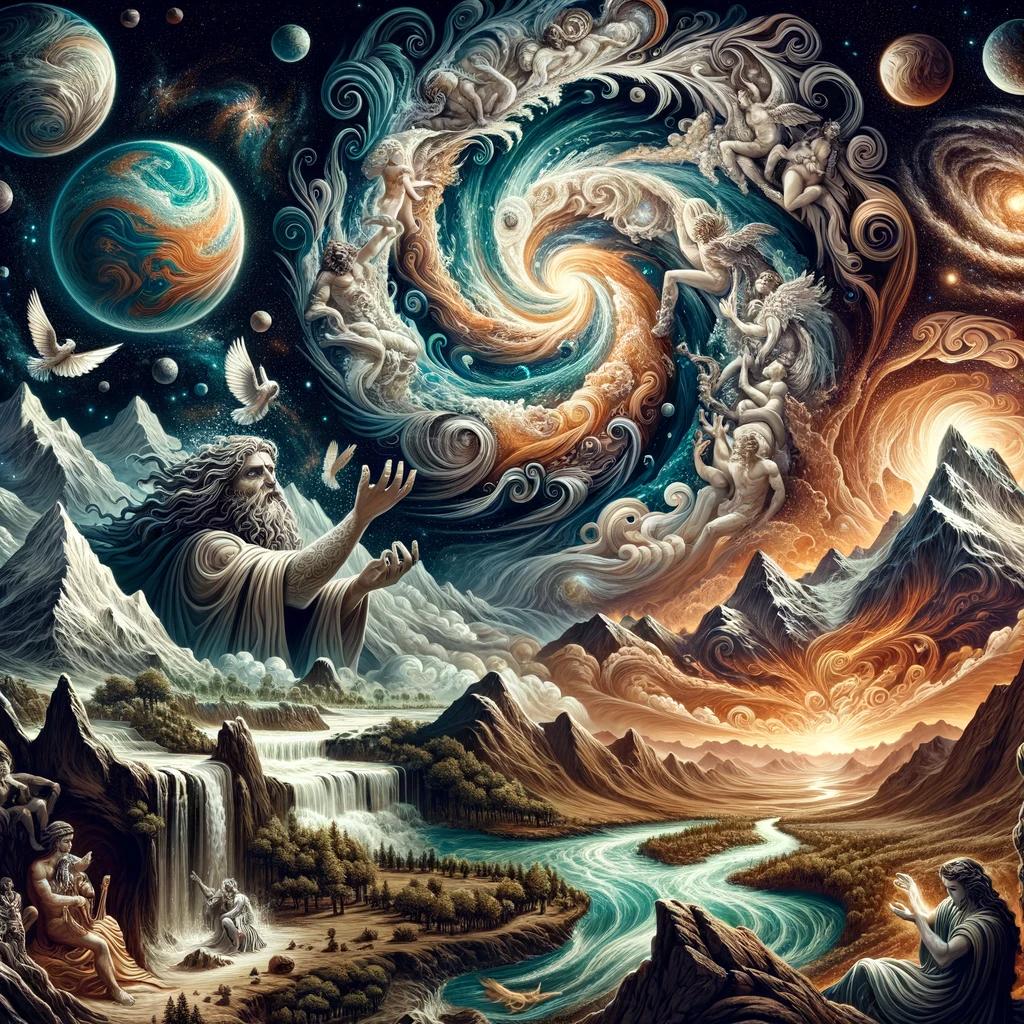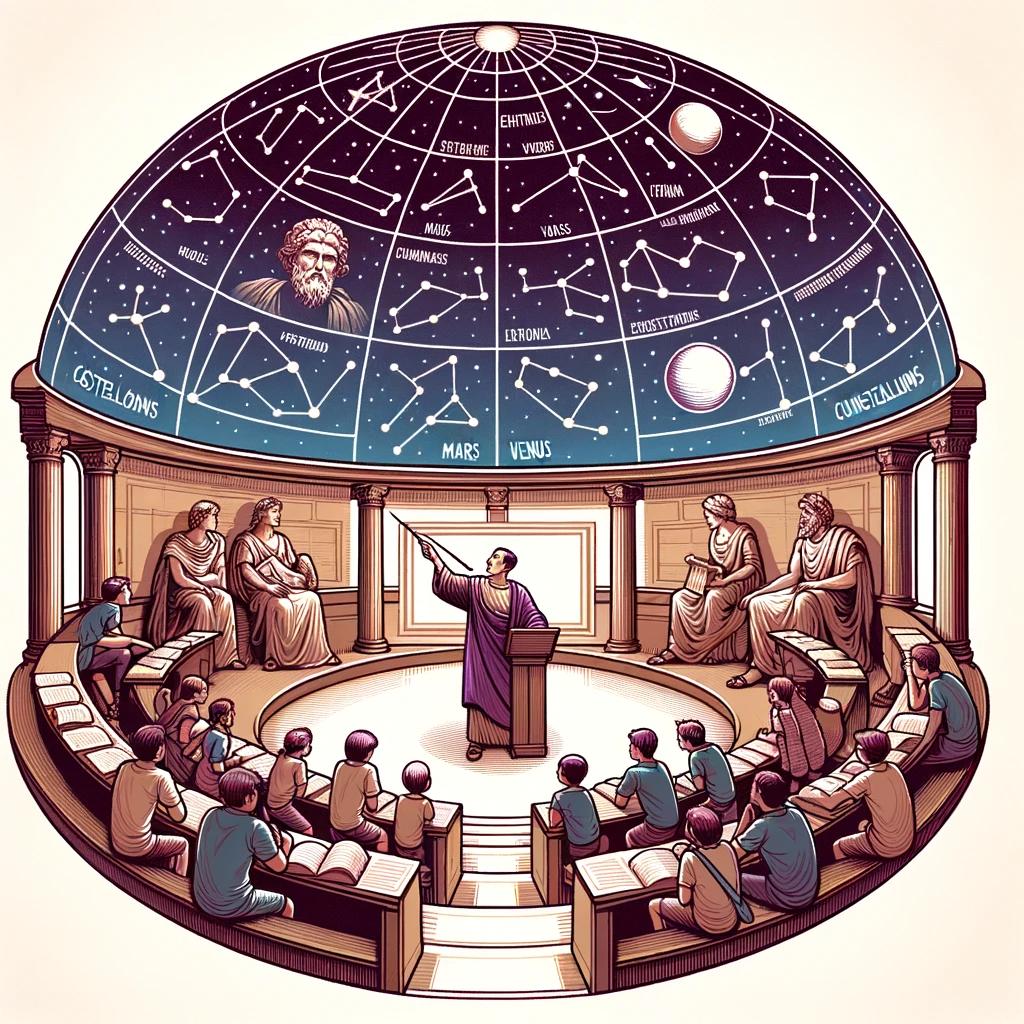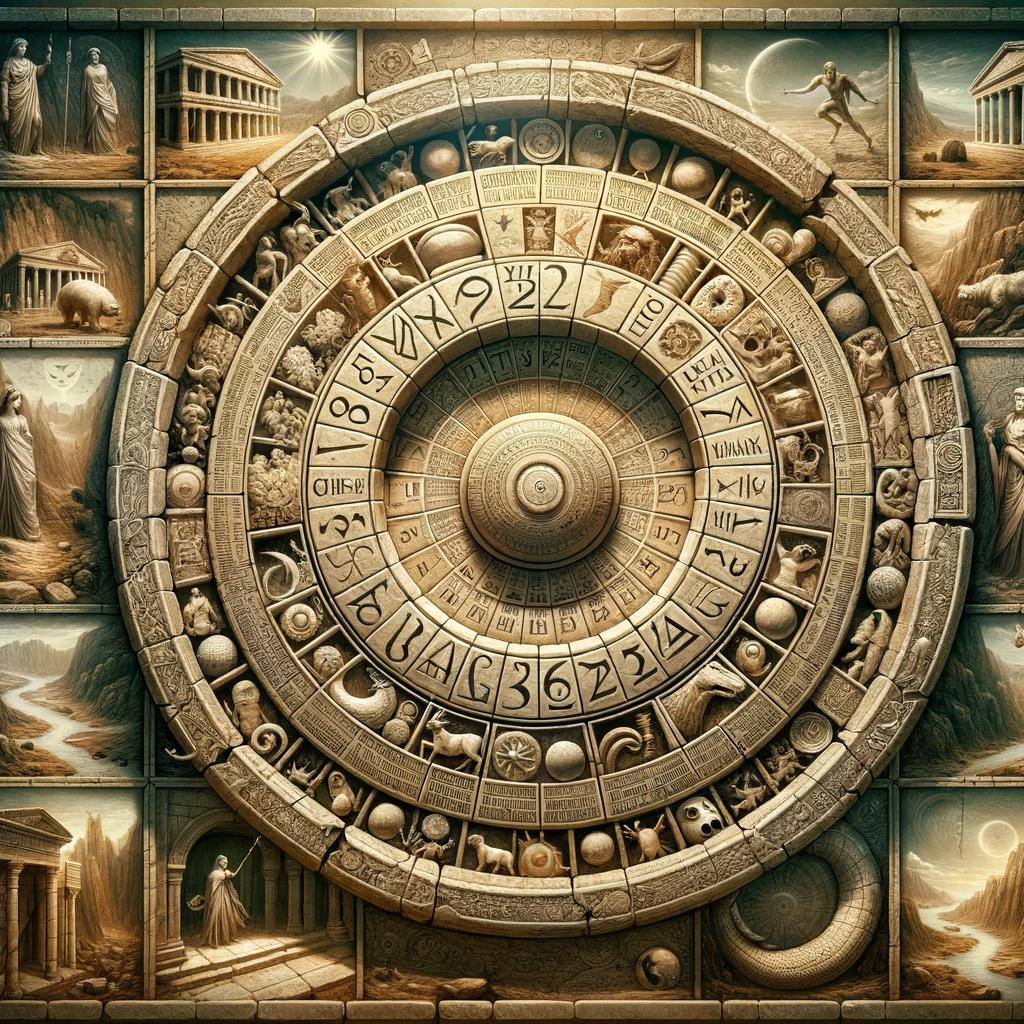Roman Mythology vs Greek: Exploring the Ancient Clash of Gods and Legends
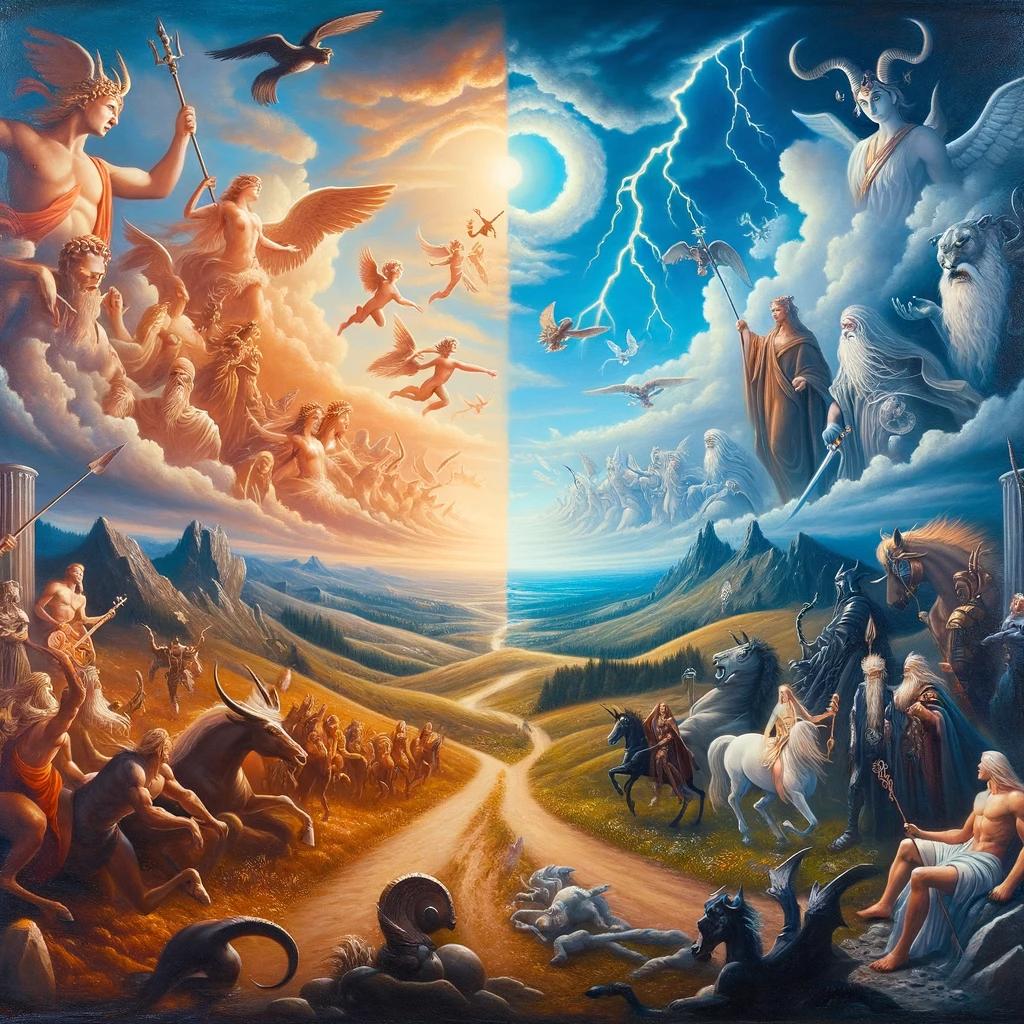
Roman Mythology and Greek Mythology are two ancient belief systems revolving around gods and goddesses. While they share similarities, there are significant differences between them. The origins of Greek mythology date back a thousand years before Roman mythology.
Greek myths, written by Homer, emerged long before Roman civilization. These myths emphasized physical attributes and Greek gods’ feats. In contrast, Virgil’s epic poem, the Aeneid, showcased Roman gods with less emphasis on physical appearance.
Additionally, Greek gods had human-based names, while Roman gods had object-based names. Furthermore, Greek mythology highlighted mortal heroes and their life lessons, whereas Roman mythology focused on an afterlife and gods’ emulation.
The Origins of Greek Mythology
Greek mythology holds a rich heritage that shaped the beliefs and culture of ancient Greece. It originated before the rise of Roman mythology, dating back to the time of Homer and his famous works such as the ‘Iliad’ and the ‘Odyssey’.
Within Greek mythology, a vast pantheon of gods and goddesses held dominion over various aspects of human life and the natural world.
The Ancient Greek Gods and Goddesses
The Greek gods and goddesses embodied human traits and emotions, with their stories illustrating the complexities of the human condition. Among the prominent deities were mighty Zeus, the ruler of the gods, and his brothers Poseidon, the god of the sea, and Hades, the god of the underworld.
The goddesses Athena, Aphrodite, and Artemis represented wisdom, love, and the hunt, respectively. These gods and goddesses were revered and worshipped by the ancient Greeks.
The Influence of Greek Mythology in Literature and Art
Greek mythology had a profound influence on literature and art throughout history.
The captivating tales of gods and heroes sparked inspiration among poets, writers, and artists. From the epic works of Homer to the tragedies of Aeschylus, Sophocles, and Euripides, Greek mythology served as a foundation for storytelling and exploration of human nature.
In visual arts, sculptures and paintings depicted mythological scenes, showcasing the gods’ power and human interactions with the divine realm.
The Origins of Roman Mythology
The Roman mythological tradition dates back to ancient times and has its roots in the early Roman civilization. While heavily influenced by Greek mythology, Roman mythology developed its unique pantheon of gods and goddesses, reflecting the beliefs and values of the Roman people.
The Roman Gods and Goddesses
The Roman gods and goddesses were an essential part of the Roman religious system. They served as divine beings associated with various aspects of life and were revered and worshiped by the ancient Romans.
Some of the prominent Roman gods and goddesses include:
- Jupiter (Roman counterpart of Zeus): The king of gods and god of the sky and thunder.
- Neptune (Roman counterpart of Poseidon): The god of the sea and earthquakes.
- Pluto (Roman counterpart of Hades): The god of the underworld and the ruler of the dead.
- Minerva (Roman counterpart of Athena): The goddess of wisdom, strategic warfare, and crafts.
- Venus (Roman counterpart of Aphrodite): The goddess of love, beauty, and fertility.
- Diana (Roman counterpart of Artemis): The goddess of the hunt, wild animals, and the moon.
- Mars (Roman counterpart of Ares): The god of war and agriculture.
- Apollo: The god of the sun, music, poetry, healing, and prophecy.
- Mercury (Roman counterpart of Hermes): The messenger of the gods, associated with commerce, travel, and communication.
The Integration of Greek and Roman Mythology
As the Roman Empire expanded and came into contact with Greek culture, the Romans adopted and assimilated many elements of Greek mythology into their own religious beliefs.
They identified their gods with the Greek counterparts, attributing similar attributes and functions to them.
This integration was partially driven by the Romans’ admiration for Greek culture and their desire to connect their own mythology to the rich traditions of the Greeks.
This process not only resulted in the Roman gods acquiring Greek names but also transformed the narratives and stories associated with them.
The integration of Greek and Roman mythology played a crucial role in bridging the cultural gap between the two civilizations and further enriching the Roman mythological tradition.
Comparison between Greek and Roman Mythology
In comparing Greek and Roman mythology, there are both similarities and differences in gods, goddesses, myths, physical appearance and characteristics, the importance of heroes, and concepts of mortality and the afterlife.
Similarities in Gods, Goddesses, and Myths
- Many gods and goddesses in both Greek and Roman mythology share similar domains and powers.
- Both pantheons include deities associated with love, war, wisdom, and the natural elements.
- Several myths from Greek mythology influenced Roman mythology and were incorporated into their own stories.
Differences in Physical Appearance and Characteristics
- In Greek mythology, gods were often portrayed with idealized human qualities and physical beauty.
- Meanwhile, Roman gods were depicted with less emphasis on physical appearance and more on their roles and attributes.
- Roman gods took their names from objects rather than human characteristics.
The Importance of Heroes in Greek and Roman Mythology
- Greek mythology placed significant emphasis on mortal heroes and their roles in epic tales and lessons.
- On the other hand, Roman mythology focused less on mortal heroes and their earthly deeds, as they believed in an afterlife.
- Roman myths concentrated more on the gods and their influence on human affairs.
Concepts of Mortality and the Afterlife
- In Greek mythology, mortals were seen as distinct from and inferior to the gods, striving for their favor through good deeds in their lifetime.
- However, Roman beliefs proposed that mortals should aspire to become like the gods they worshipped, as life on Earth was just the beginning of an afterlife.
- Roman mythology focused more on the idea of an afterlife and the transition of souls.
Greek Gods and Goddesses
The Greek pantheon is filled with powerful gods and goddesses, each with their unique domains and characteristics.
Let’s explore some of the most prominent deities:
Zeus, Poseidon, and Hades: The Three Powerful Brothers
Zeus, the king of the gods, reigns over Mount Olympus and the sky. He wields thunderbolts and upholds law and order. Poseidon, the god of the sea, commands the oceans and controls earthquakes.
Hades, the ruler of the underworld, governs the realm of the dead.
Athena, Aphrodite, and Artemis: The Powerful Goddesses in Greek Mythology
Athena, the goddess of wisdom and battle strategy, embodies intellect and courage. Aphrodite, the goddess of love and beauty, stirs desire and passion. Artemis, the goddess of the hunt and the moon, protects wildlife and presides over childbirth.
Ares, Apollo, and Hermes: The Male Deities of War, Sun, and Messenger
Ares, the god of war, personifies violent conflict and represents the chaos of battle. Apollo, the god of the sun and music, symbolizes enlightenment and artistic pursuits. Hermes, the messenger of the gods, facilitates communication and guides souls to the underworld.
The divine pantheon of Greek mythology is vast and diverse, with numerous gods and goddesses shaping different aspects of life and the natural world.
Roman Gods and Goddesses
In Roman mythology, the gods and goddesses played a significant role in shaping the beliefs and rituals of the ancient Romans. They were often associated with various aspects of life and nature, and their worship was an integral part of Roman society.
Let’s explore some of the key Roman deities:
Jupiter, Neptune, and Pluto: The Roman Counterparts of the Greek Brothers
- Jupiter: Known as the king of the gods, Jupiter was the Roman equivalent of Zeus in Greek mythology. He was associated with thunder, lightning, and the protection of the state.
- Neptune: Roman counterpart of Poseidon, Neptune was the god of the sea and all water bodies.
He was revered as the protector of sailors and fishermen.
- Pluto: Similar to Hades in Greek mythology, Pluto ruled over the underworld and was the god of the dead.
He oversaw the afterlife and was also associated with riches from the earth.
Minerva, Venus, and Diana: The Roman Equivalent Goddesses
- Minerva: The Roman counterpart of Athena, Minerva was the goddess of wisdom, strategy, and handicrafts. She was highly esteemed and considered the patroness of various art forms.
- Venus: Roman equivalent of Aphrodite, Venus was the goddess of love, beauty, and fertility.
She was widely worshipped, and her influence extended to encompass both physical and spiritual love.
- Diana: The Roman version of Artemis, Diana was the goddess of the hunt, wild animals, and the moon.
She represented purity and chastity and was often associated with nature.
Mars, Apollo, and Mercury: The Roman Versions of War, Sun, and Messenger Gods
- Mars: Roman counterpart of Ares, Mars was the god of war and was revered for his courage and martial prowess. He was looked upon as a protector of Rome and its military.
- Apollo: The Roman version of Apollo was associated with the sun, music, poetry, and healing.
He was highly regarded as the god of prophecy and was consulted in times of decision-making.
- Mercury: Roman equivalent of Hermes, Mercury was the god of commerce, travel, and communication.
He was believed to be the messenger of the gods and ruled over various domains, including financial gain and eloquence.
The Roman pantheon consisted of numerous other gods and goddesses, each with their own realm of influence and significance.
Their worship and reverence were deeply embedded in the daily lives of the Romans, shaping their cultural and religious practices.
The Trojan War in Greek and Roman Mythology
The Trojan War is a legendary conflict that holds significant importance in both Greek and Roman mythologies. This epic war is said to have taken place in the late Bronze Age and was fought between the Greeks, led by King Agamemnon, and the Trojans, defended by Prince Hector.
The Role of Greek Heroes in the Trojan War
The Greek heroes played a crucial role in the outcome of the Trojan War. These brave warriors showcased their exceptional skills and valor on the battlefield, making them legendary figures in Greek mythology.
Some notable heroes include:
- Achilles: Known for his immense strength, invulnerability, and his legendary vulnerable heel.
- Hector: A valiant Trojan prince who displayed remarkable courage in defending his city.
- Odysseus: A cunning and resourceful leader who devised the idea of the Trojan Horse, ultimately leading to the fall of Troy.
- Agamemnon: The powerful Greek king who commanded the united Greek forces in the war.
The Roman Perspective on the Trojan War
The Roman perspective on the Trojan War differs slightly from the Greek accounts.
While the Romans acknowledged the existence of the war, their focus shifted towards the foundation myth of Rome itself. According to Roman mythology, the Trojan prince Aeneas, one of the few survivors of the war, fled to Italy and eventually became the ancestor of Romulus and Remus, the founders of Rome.
This Roman perspective emphasizes the connection between the Trojans and the Romans, highlighting the lineage and origins of their civilization. The story of Aeneas and his journey, as told in Virgil’s ‘Aeneid,’ showcases the Roman belief in their divine ancestry and the role of fate in shaping their destiny.
While both Greek and Roman mythologies incorporate the Trojan War, the focus and significance vary between the two cultures. The Greek heroes embody the ideals of bravery and skill, while the Roman perspective places greater importance on the mythological origins of Rome itself.
.











